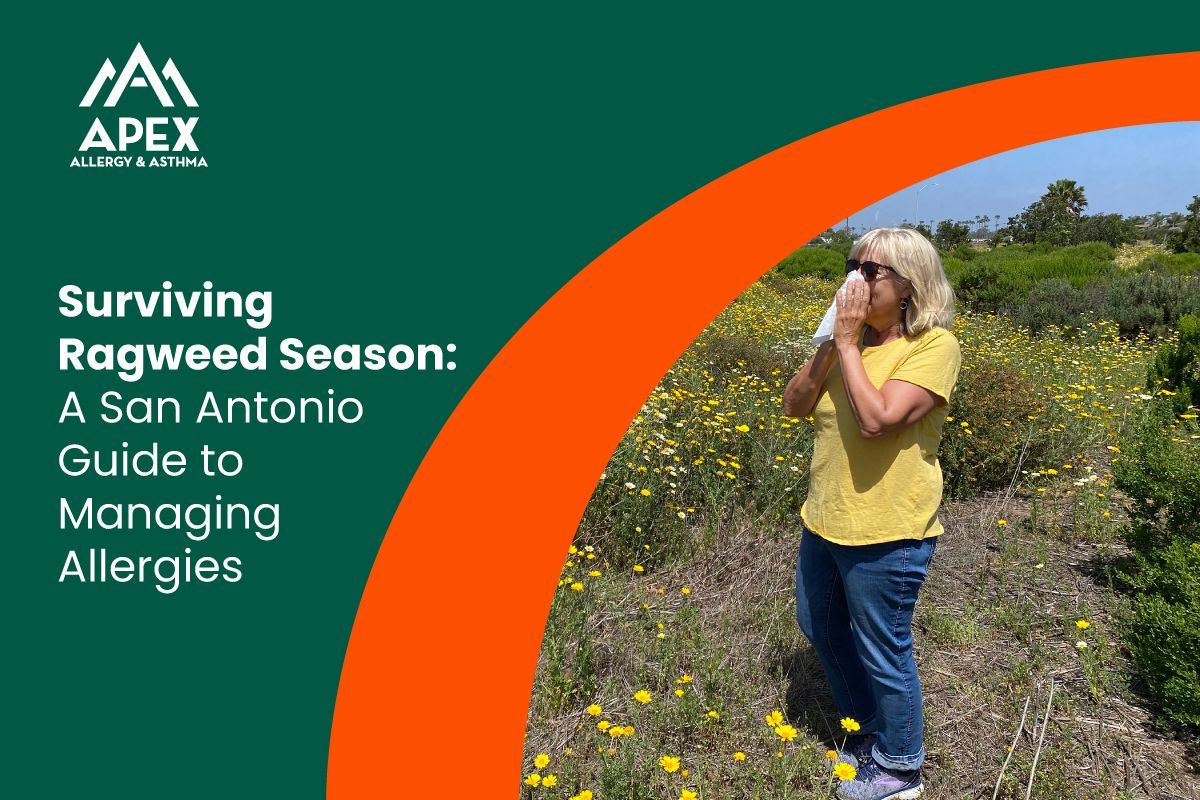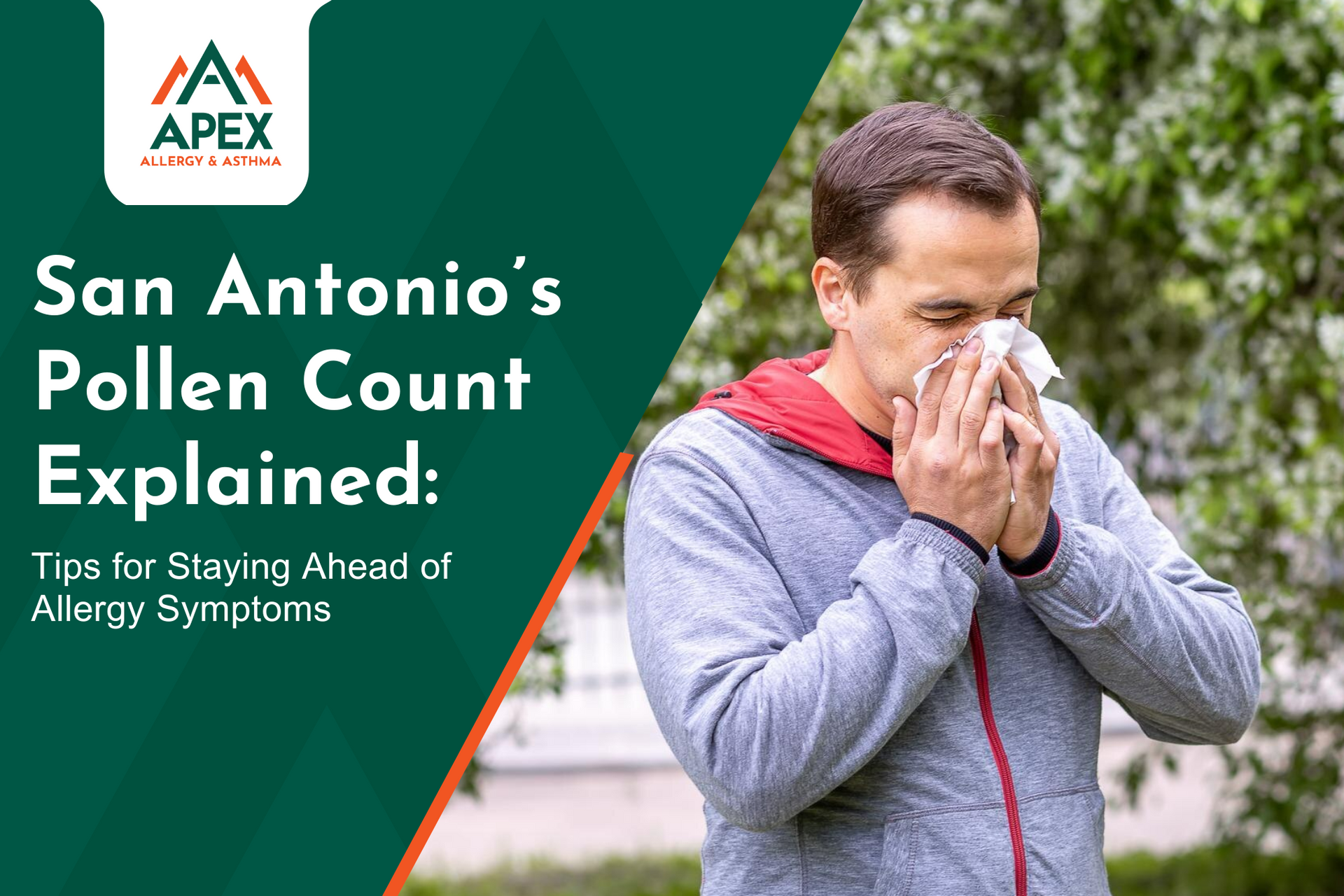Surviving Ragweed Season: A San Antonio Guide to Managing Allergies

As the seasons change, so do the allergens in the air. For many San Antonio, Texas residents, ragweed season is a recurring challenge. The abundance of this common allergen leads to discomfort and disruption of daily routines for those allergic. Fortunately, there are safe, effective, and achievable ways to help you avoid and manage ragweed allergies.
This comprehensive guide will explore practical strategies to control allergies during ragweed season, allowing you to live an allergy-free life any time of the year.
What is Ragweed Allergy?
Ragweed, scientifically known as Ambrosia artemisiifolia, is a common weed that releases pollen into the air during late summer and early fall. Though it doesn’t live very long, a single plant can release up to a billion pollen grains in a season before it dies. The airborne pollen is a potent allergen which triggers an allergic reaction in sensitive individuals. This reaction is called allergic rhinitis, commonly referred to as “hay fever” or “ragweed allergy,” and it typically occurs during the late summer and early fall.
Common Symptoms
Some people have mild symptoms and take ragweed allergy as a minor annoyance. However, more sensitive people experience a decline in their quality of life.
Typical symptoms of ragweed pollen allergies:
- Sneezing
- Runny or stuffy nose
- Itchy or watery eyes
- Throat irritation
- Coughing
- Fatigue
Minimizing Exposure
Minimizing exposure to ragweed pollen is the first step to beating ragweed season. To effectively reduce allergic reactions and alleviate allergy symptoms, apply the following strategies:
Monitor Pollen Levels
Learn the daily pollen counts in your area. Websites and apps provide up-to-date information.
Keep Windows and Doors Closed
During peak pollen hours, typically in the morning and evening, keep windows and doors closed to prevent pollen from entering your home.
Use Air Purifiers
Investing in a high-quality air purifier equipped with a HEPA filter significantly reduces indoor allergens, including ragweed pollen.
Personal Care Tips
Aside from minimizing exposure to ragweed allergens, you can also try other methods to treat, manage, or prevent symptoms.
Shower and Change Clothes
After spending time outdoors, especially on high-pollen days, shower and change into fresh garments to eliminate lingering pollen.
Use Saline Nasal Rinses
Saline rinses flush pollen, helping clear the clogged nasal passages, relieving congestion and irritation.
Dietary Considerations
Oral allergy syndrome - or pollen food allergy syndrome - is a condition where certain food proteins cross react with the pollen a person is allergic to. Symptoms are typically limited to the oral membranes and can include itchy lips, tongue, and throat. These symptoms arise rapidly but are typically self-limited and resolve after 20-30 minutes. These symptoms can be worse during the height of the respective pollen season.
Ragweed Allergy Foods to Avoid
In the case of ragweed allergy, foods like bananas, melons, zucchini, cucumber and chamomile tea can trigger cross-reactivity. Avoiding these items during ragweed season may help alleviate symptoms.
Recommended Anti-Inflammatory Foods
Food groups rich in omega-3 fatty acids, like salmon and flaxseeds, have anti-inflammatory effects that may help reduce allergy-related inflammation.
Over-the-Counter Remedies
Over-the-counter medicines offer safety and convenience to those with ragweed allergies. These drugs help alleviate the symptoms with fewer side effects.
Antihistamines
A non-prescription antihistamine is one of the best medicines for ragweed allergies. It relieves allergy symptoms by blocking the effects of histamines released during allergic reactions.
Nasal Steroids
Nasal steroids treat inflammation in the nasal passages. They work by reducing swelling and irritation in the lining of the nose, which helps alleviate symptoms such as congestion, runny nose, and sneezing.
These drugs are available in prescription and over-the-counter forms and can treat various conditions, including allergies, sinusitis, and nasal polyps. Follow your allergists' instructions when using nasal steroids to ensure safe and effective treatment.
Decongestants
Decongestants are also effective remedies in ragweed allergy relief. They help alleviate nasal congestion, making breathing more comfortable. It is important to note that patients with high blood pressure or rapid heart rate should only use decongestants on a short term basis due to potential side effects.
Consult with a Healthcare Professional
Talking to an allergist is still your best bet in ragweed allergy treatment. These allergy experts can detect early signs of allergies and provide you with the appropriate treatment options.
Allergy Testing
If your ragweed allergies are severe or persistently disruptive, consider undergoing allergy testing to identify specific triggers and develop a personalized treatment plan.
Allergen Immunotherapy (Allergy Shots and Tablets)
Allergy shots desensitize your body's natural defenses to particular allergens, including ragweed pollen. There is also a ragweed-specific sublingual tablet patients can take daily before pollen season starts to minimize or prevent symptoms.
Navigating ragweed season in San Antonio doesn't have to be daunting. Applying these strategies allows you to manage your allergies and minimize the disruptions keeping you from living your best life. Consistency is critical, so incorporate these practices into your daily routine for optimal results. Take charge of your health and savor the beauty of autumn in San Antonio.
FAQs
Q: How can I minimize my exposure to ragweed pollen?
A: You can minimize your exposure to ragweed pollen by monitoring pollen levels, keeping windows and doors closed during peak pollen hours, and using air purifiers equipped with HEPA filters.
Q: What are some personal care tips for managing ragweed allergy symptoms?
A: Personal care tips for managing ragweed allergy symptoms include showering and changing clothes after spending time outdoors, using saline nasal rinses to clear nasal passages, and avoiding exposure to other allergens.
Q: When should I consult a healthcare professional for ragweed allergy?
A: You should consult a healthcare professional for ragweed allergy if your symptoms are severe or persistently disruptive. Allergy testing and allergen immunotherapy, commonly known as allergy shots, may be recommended for more severe cases.
Survive Ragweed Allergy Season Like a Pro!
You're on the right track if you’re searching online for "ragweed San Antonio" and "allergy season San Antonio."
Now that you understand the essential tips for surviving ragweed allergy season in San Antonio, Texas, implementing them into your routine will help you and your loved ones overcome ragweed allergies not just this season, but for all seasons to come.
Are you ready to enjoy ragweed season without worrying about allergies? Let the board-certified
Apex Allergy and Asthma allergists help you achieve the allergy-free life you deserve! Mark Stahl, DO, and his team use evidence-based allergy treatment plans with years of experience and a proven track record.
Request to schedule an appointment time that suits your needs by calling (210) 490-2051 or book an appointment
here.



